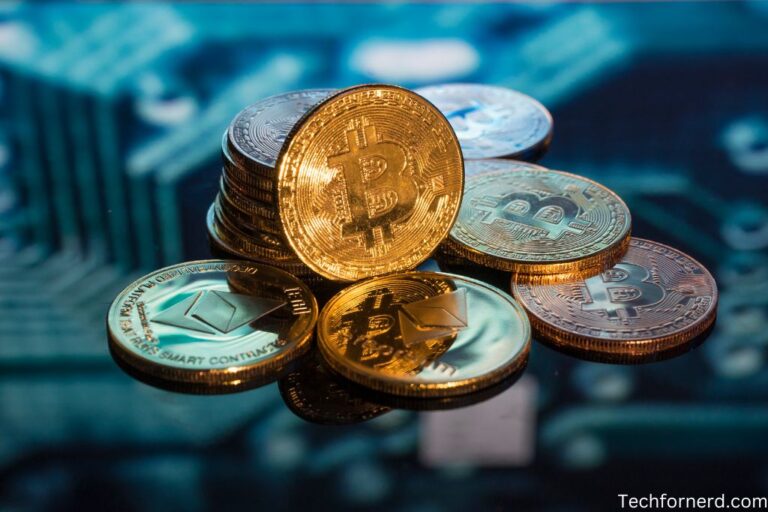Decentralized Finance (DeFi) is a game-changer in the finance industry, utilizing blockchain technology to transform traditional financial systems. With DeFi protocols and applications, users can access various financial services such as lending, borrowing, trading, and yield farming, all on a transparent and decentralized platform.
Definition of Crypto Market Making
The provision of liquidity in the DeFi ecosystem is mainly based on the concept of crypto market making. Market makers are entities that facilitate trading by continuously providing both buy and sell orders for a particular asset on a decentralized exchange (DEX). They act as intermediaries between buyers and sellers, ensuring that the market has enough liquidity and the prices stay stable.
Importance of Market Making in DeFi
Market making is a vital aspect of DeFi for various reasons:
1. Liquidity Provision: Market makers ensure the liquidity of a decentralized exchange (DEX) by continuously offering buy and sell orders. This helps users trade without experiencing slippage or price manipulation issues.
2. Price Discovery: Market makers assist in determining the fair market value of an asset by quoting prices based on supply and demand dynamics. Their orders serve as a reference point for other market participants.
3. Efficient Trading: Market makers facilitate efficient trading by providing liquidity, which reduces the bid-ask spread and enables instant execution of trades.
High Profit Potential
Crypto market making in DeFi offers a lucrative opportunity for high profits. Market makers generate income through two primary channels.
Firstly, market makers profit from the bid-ask spread, which is the difference between the highest price a buyer is willing to pay (bid price) and the lowest price a seller is willing to accept (ask price). By buying at the bid price and selling at the ask price simultaneously, market makers earn a profit from the spread. This strategy is called spread arbitrage.
Secondly, market makers can earn profits by providing liquidity to DeFi protocols. In return for their liquidity provision, market makers receive various forms of compensation, such as transaction fees, protocol fees, or yield from liquidity mining programs. This compensation can be a significant source of income for market makers.
Diversification of Investment Portfolio
Investors can diversify their portfolio by participating in DeFi crypto market making. Through the use of multiple DeFi protocols and liquidity pools, market makers can spread their risk across various assets and protocols, reducing the impact of potential losses in any one market.
Moreover, market makers can gain exposure to different asset classes within the DeFi ecosystem, such as stablecoins, decentralized exchanges, lending platforms, and yield farming protocols. This diversification can help mitigate risks and create a more balanced investment portfolio.
Active Participation in DeFi Ecosystem
Market makers are actively involved in shaping the DeFi ecosystem by providing liquidity and facilitating trading. They are crucial to the overall health and growth of the decentralized financial landscape.
Market makers have the power to influence token prices by their orders and liquidity provision. They can help stabilize markets during periods of volatility by providing liquidity, which helps absorb excess buying or selling pressure. Moreover, market makers can support new protocols and projects by providing liquidity to their liquidity pools, which fosters innovation and adoption within the DeFi space.
Continuous Market Liquidity Provision
One of the major benefits of crypto market making in DeFi is the ability to offer liquidity 24/7. Unlike traditional centralized exchanges that operate during specific hours, DeFi protocols operate continuously. This allows market makers to provide liquidity and facilitate trading at any time.
In addition, market makers can employ automated market making algorithms to optimize their strategies and adapt to changing market conditions. These algorithms can execute trades based on predefined rules, enabling market makers to efficiently manage their liquidity provision without constantly monitoring it.
Challenges of Crypto Market Making in DeFi
Although market making in DeFi’s crypto market is full of opportunities, it comes with many challenges. To navigate the DeFi landscape effectively, market makers must understand these challenges.
Volatility and Market Risks
Decentralized Finance (DeFi) markets are characterized by high volatility, which makes them susceptible to sudden changes in asset prices, liquidity, and market sentiment. Market makers, who facilitate trades by providing liquidity, are exposed to significant risks due to market volatility. This includes potential losses resulting from sudden price swings or liquidity imbalances.
In addition to market volatility, market makers need to manage liquidity risk, which arises when there isn’t enough liquidity in the market. This can lead to slippage or failed trades. As a result, market makers must carefully manage their positions and risk exposure to minimize potential losses.
Complexity of DeFi Protocols
Navigating the complex landscape of DeFi protocols can be challenging for market makers. Understanding the intricacies of smart contracts, liquidity pools, and yield farming mechanisms requires a deep understanding of blockchain technology and DeFi dynamics.
Market makers must carefully evaluate the risks associated with each protocol, including the potential for smart contract vulnerabilities and the possibility of hacking incidents. Staying updated with the latest developments and actively participating in DeFi communities can help mitigate these risks.
Regulatory Uncertainty
The world of DeFi is still largely unexplored when it comes to regulations. Different jurisdictions have different levels of regulatory oversight, making it tough for market makers to navigate and understand the legal risks they face.
To avoid legal complications and ensure the sustainability of crypto market making activities in the long run, it is important to have a clear understanding of local regulations and adhere to compliance requirements.
Operational Risks
Operational risks are always present in any financial activity, and the same applies to crypto market making. As market makers, it is crucial to consider the possibility of systemic failures in DeFi platforms, such as smart contract errors or technical glitches, which can result in losses or compromised funds.
Moreover, market makers must remain vigilant against potential hacking incidents and security breaches as the decentralized nature of DeFi exposes them to vulnerabilities that traditional financial systems may not have.
Strategies for Mitigating Risks in Crypto Market Making
To effectively deal with the difficulties and risks associated with crypto market making in DeFi, market makers can implement different strategies:
1. Diversification of Liquidity Pools: Market makers should provide liquidity across multiple liquidity pools and protocols to reduce risk concentration and distribute their exposure across various assets and protocols.
2. Risk Management Tools and Algorithms: Automated market making algorithms and risk management tools can assist market makers in optimizing their strategies and adapting to changing market conditions. These tools can help manage liquidity, reduce slippage, and mitigate risks associated with volatility and liquidity imbalances.
3. Continuous Monitoring and Adaptation: Market makers should proactively monitor market conditions and stay informed about developments within the DeFi ecosystem. Regularly assessing their liquidity provision performance and adjusting strategies accordingly can help market makers adapt to changing market dynamics and minimize risks.
4. Collaboration with DeFi Communities: Market makers should actively engage with DeFi communities and participate in discussions and initiatives to gain valuable insights and foster collaboration. By working together with other market makers, liquidity providers, and protocol developers, market makers can collectively contribute to improving the overall stability and growth of the DeFi ecosystem.
Case Studies of Successful Crypto Market Making in DeFi
To gain a practical understanding of the opportunities and challenges of crypto market making in DeFi, let’s explore a few case studies of successful market making strategies.
Example 1: Uniswap Market Making
Uniswap is a leading decentralized exchange that has attracted many market makers due to its liquidity provision mechanisms. Market makers on Uniswap can earn fees and participate in yield farming programs by providing liquidity to liquidity pools. Successful market makers on Uniswap have used automated market making strategies and actively managed their positions to capitalize on trading opportunities while mitigating risks.
Example 2: Balancer Market Making
Balancer is another popular DeFi protocol that offers a unique liquidity provision model. Market makers on Balancer can create custom liquidity pools and earn fees by providing liquidity to these pools. Balancer’s flexible pool creation allows market makers to tailor their strategies to specific market conditions and asset classes, providing an additional layer of diversification and potential profit generation.
These case studies highlight the potential for market makers to navigate the DeFi landscape and capitalize on trading opportunities while managing risks effectively.
The market making business in the world of decentralized finance (DeFi) offers both opportunities and challenges. Market makers can benefit from high profit potential, diversification of investment portfolios, active participation in the DeFi ecosystem, and continuous market liquidity provision. However, they must also navigate the complexities of DeFi protocols, market volatility, regulatory uncertainty, and operational risks.
To mitigate risks and seize the opportunities presented by the rapidly evolving DeFi market, market makers can adopt strategies such as diversification, risk management, continuous monitoring, and collaboration with DeFi communities.
As DeFi continues to grow and mature, the role of market makers will become increasingly crucial in ensuring liquidity, stability, and innovation within the decentralized financial landscape. Market makers who can navigate these challenges and leverage the opportunities will be well-positioned to thrive in the dynamic world of DeFi.
He is a computer engineer by day and a gamer by night. He has played many different games, like retro games like Contra, classic Mario, to AAA games. He likes to share his passion for gaming through his guides.

